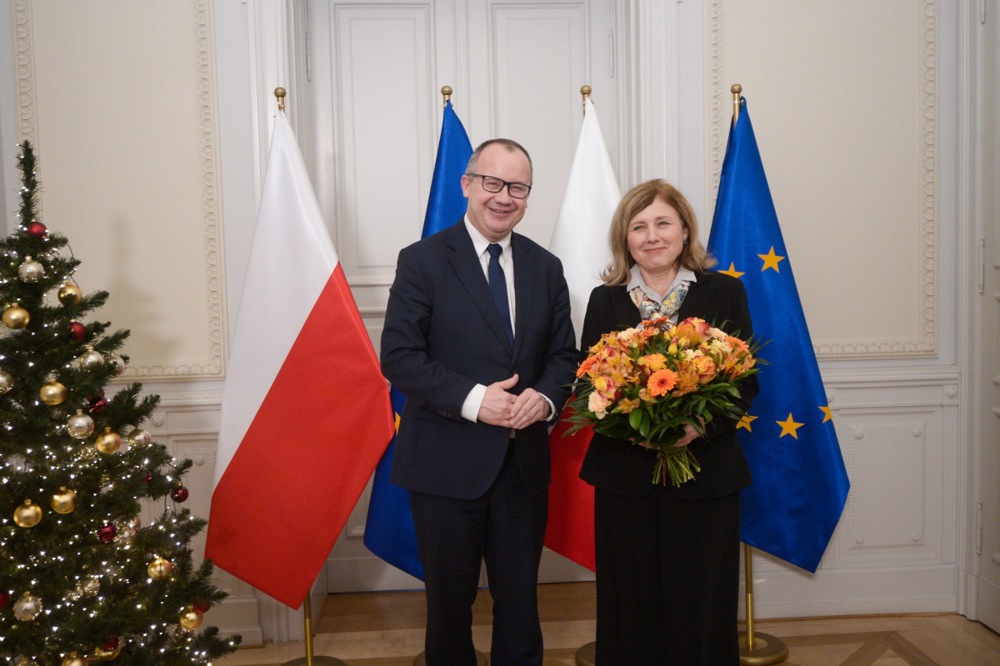The European Commission is applying egregious double standards when it comes to Poland. They “do not comment on individual cases,” reads their response sent to V4NA’s written inquiry. However, several previous cases appear to point to the contrary, as in the past Brussels did not shy away from issuing comments or statements in certain ‘individual cases’.
V4NA addressed written inquiries to the presidents of the European Parliament and the European Commission, as well as to Vera Jourova, the commissioner for values and transparency, following the events in Poland.
As has been reported, the former Interior Minister Mariusz Kaminski and his deputy Maciej Wasik, both members of the now opposition Law and Justice (PiS) party, were arrested at the Polish Presidential Palace on Tuesday evening. The politicians had previously been sentenced to prison but were granted presidential pardons. In response to the arrests, crowds of protesters immediately took to the streets and PiS MPs denounced the arrests, accusing Sejm Speaker Szymon Holownia of criminal offences. Poles, experts and politicians are calling it the latest in a series of rule of law violations, which have become a regular occurrence in the country since Donald Tusk took power last month.
The recent dismissals of the heads of Polish public television, radio and state news agency, as well as the threats and attempts to remove judges have all been measures that have rightly provoked the anger of Poles concerned about the rule of law and freedom of speech and expression.
V4NA turned to the leaders of EU institutions to find out how they plan to address the obvious rule of law violations and protect universal EU values such as freedom of expression.
In its response, the European Commission said it is aware of the events in Poland and the arrests of the MPs, which triggered mass protests, but said it is a „national matter under the control of national authorities”. „As you know, the Commission does not comment on individual cases,” the body’s spokesperson on rule of law issues wrote in the reply.
The question arises as to what the Commission considers an „individual case”. There have been numerous instances when the previous right-wing Polish and current Hungarian governments have been the subject of their criticisms – potentially leading to serious legal repercussions – on issues that are within the national competence of the member states. In other words, the European Commission has intervened in the internal affairs of countries on several occasions.
Brussels had regularly lambasted the PiS government for justice system reforms, despite the functioning and structure of a country’s judiciary being an area of jurisdiction for member states, and not the competence of the European Commission.
The Commission has also made a statement concerning internal affairs in the case of Hungary. After the adoption of Hungary’s child protection law, European Commission President Ursula von der Leyen called the legislation „shameful” and vowed that the Commission would use all its powers to protect the rights of the LGBTQ community in Hungary.
In the case of Hungary, even more glaringly, the European Commission commented on „individual cases” quite similar to the Polish one. In connection with an opposition demonstration that turned violent last April
European Commission Vice-President Vera Jourova met with several participants of the protest to assure them of the Commission’s support and that the events of the preceding weeks would be investigated in detail.
In light of this, it is interesting that that the Commission describes one of the main causes sparking the recent string of protests in Poland as an ‘individual case’ and does not comment on it.
V4NA


